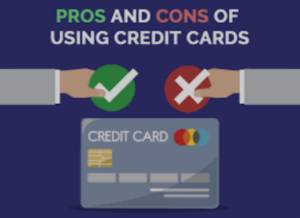Assessing Pros and Cons

Convenience vs. Overspending
Using a credit card offers convenience in making purchases without carrying cash. However, the ease of swiping a card can lead to overspending, especially when there is no tangible exchange of money. For example, if you’re not diligent about tracking your expenses, it’s easy to lose track of how much you’ve spent.
On the other hand, having cash on hand makes it more challenging to spend impulsively because you physically see the money leaving your wallet or purse. This can help control unnecessary purchases and prevent overspending.
- Convenience: Quick and easy transactions
- Overspending: Lack of awareness about expenditure
Security vs. Fraud Risk
Credit cards offer security by protecting unauthorized charges through fraud monitoring systems and zero-liability policies for fraudulent transactions. However, they also pose a fraud risk due to potential identity theft or unauthorized use if the card is lost or stolen.
For instance, while credit cards provide peace of mind with their fraud protection measures like PINs and EMV chips, they are still susceptible to online hacking or skimming devices at physical locations.
- Security: Protection against unauthorized charges
- Fraud Risk: Susceptibility to identity theft and unauthorized use
Perks vs. Temptations
One advantage of using a credit card is access to various rewards programs such as cashback bonuses, travel miles, or discounts on specific purchases – these are considered valuable perks that come with responsible usage. Conversely, these enticing perks may create financial temptations, encouraging individuals to spend more than necessary just to earn rewards.
For example, some people might feel compelled to make unnecessary purchases solely to accumulate reward points rather than consider their actual needs.
- Perks: Accessible rewards programs
- Temptations: Encouragement for unnecessary spending
Accessibility vs. Financial Discipline
The accessibility provided by credit cards allows users immediate purchasing power even when funds are low; however, this same accessibility challenges an individual’s ability to maintain appropriate financial discipline leading them into debt cycles.
Consequently, individuals should exhibit strong self-discipline when using credit cards ensuring monthly balances are paid off in full each month avoiding high-interest rates that could accumulate over time.





GIPHY App Key not set. Please check settings